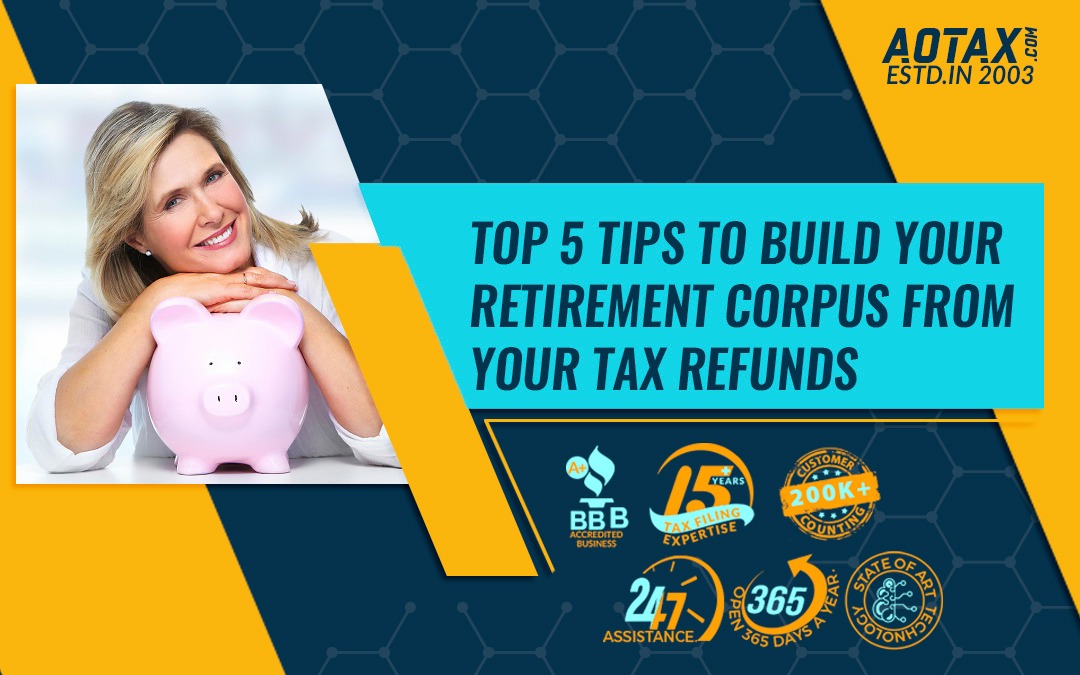
Top 5 Tips to build your Retirement Corpus from your Tax Refunds
Top 5 Tips to build your Retirement Corpus from your Tax Refunds
Should I start investing for my retirement? When is the right time to start my retirement planning? These are some of the questions that a lot of us ponder over. And in the process of just thinking and not acting, we miss out on some crucial investments.If you have received some tax refunds, instead of spending it away, it is worth investing it for your retirement corpus. Today is the right time for you to start planning for your retirement. Here are some important tips that will help you build your retirement corpus.
401(K)
This might seem very obvious, yet a lot of taxpayers forget to exercise this option. If your employer offers a traditional 401(K) plan and you have the right eligibility, do not shy away from it. What makes this option interesting is that your investment is pre-tax. In simple words, the amount will be deducted even before any tax is calculated on your income. This allows you to make the most of it and invest more. Some employers offer Roth 401(K), which essentially deducts the amount after taxes have been calculated. Consider the tax bracket that you might retire in and choose a plan accordingly.
Catch-Up Contributions
Since there is a cap on the amount that you can contribute towards 401(K) for a fiscal year, it is recommended to start early with your retirement plans. However, it all changes as soon as you reach 50 years. The restrictions on the amount that you can invest are no more valid, thus you can invest more for your retirement. If you have missed out on some payments in the past, this is the time to do the catch-up.
IRA
The IRA or the Individual Retirement Account is another way by which you can invest for your retirement. You can either choose between a traditional IRA or Roth IRA. The Traditional IRA can be beneficial depending on whether you and your spouse have retirement plans in place from your employer. Based on your tax eligibility the contributions can e tax deductible and your funds will grow tax-free until you withdraw the funds. Roth IRA makes for a good choice if you qualify for phased out income limits. The investments are tax free if you reach 59 and a half years.
Match your employer
If you work for an employer that offers 401(K) it might be worth matching their contributions. Your employer can invest as much as 50% of your contributions, up to a maximum of 5% of your salary. Thus, if you are taking home $60,000 a year, you can contribute $3,000 for your 401(K). Your employer will have to contribute another $1,500. You would not want to miss out on this amount.
Automatic savings
Another smart way of ensuring that you save and money on a regular basis for your retirement is to set up automatic monthly contributions. This will save you from putting in efforts on a monthly basis and get your contributions some discipline. You can reach out to your bank to see the available options to invest automatically on a monthly basis towards your retirement funds.
If you have received any funds as income tax refunds, retirement investment is one of the smartest things that you can do with those funds. There are enough options available for you to either enhance your existing contributions or start fresh if you have not already. Individuals who haven’t yet started, you can start today and make the most of the different options available.


Recent Comments